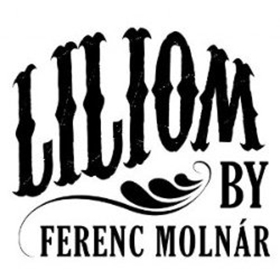
Mint Theater (Jonathan Bank, Producing Artistic Director) will present a rare reading of Ferenc Molnár's Liliom for one night only, on Monday, June 11 at 7pm at Theatre Row (410 West 42nd Street). Tickets, which are now on sale, are $35 or $100 which includes a post-reading reception with the cast. (Cast to be announced). For information or to order tickets, call 212.315.9434 or visit MintTheater.org.
Liliom tells the story of a shiftless carousel barker ("Liliom" is the Hungarian for lily, and the slang term for "a tough"). Ferenc Molnár's mystical drama charts Liliom's ill-fated love-affair with a servant girl named Julie, and his attempt to recompense her in the afterlife.
Liliom was a failure when first produced in Budapest in 1909-Molnár's daring blend of gritty realism and poetic fantasy baffled audiences. A revival in Budapest was well-received ten years later and in 1921, the play was produced on Broadway by
The Theatre Guild in an English translation by
Benjamin Glazer. The production was a success, and Liliom remained wildly popular in America throughout the early 20th century-until
Richard Rodgers and
Oscar Hammerstein re-fashioned the play into their hit musical Carousel.
Molnár was generally opposed to adaptation of his plays and Liliom was no exception. He was first approached by composer
Giacomo Puccini, who wanted to use the play as the basis for an opera. Molnár refused, saying, "I want it to be remembered as Molnár's Liliom, not Puccini's Liliom." Molnár also turned down Kurt Weil,
George Gershwin, and
Richard Strauss.
But Rodgers, Hammerstein, and their esteemed producers at
The Theatre Guild were determined to wrestle the rights from Molnár's grasp. The Guild decided that the best means of persuasion was to have the playwright see their tremendously popular production of Rodgers and Hammerstein's Oklahoma! The idea worked; Molnár was charmed by the musical and agreed to have his play adapted by the famous team. Carousel opened in 1946 and became a benchmark classic of American musical theater, overshadowing Molnár's early masterpiece.
Though Carousel remains the more produced work, Liliom provides its own unique rewards. Mint Theater is pleased to present Molnár's "wise and beautiful" (New York Times) meditation on human limitation and the power of love, as a special one-night only Benefit reading.
Mint Theater Company audiences know Molnár as the author of its acclaimed production, Fashions for Men, produced by
the company in 2014 under the direction of
Davis McCallum. WNETs "Theatre Close Up" recorded Mint's production, which was nominated for two Drama Desk Awards: Outstanding Revival and Outstanding Set Design.
Born as Ferenc Neumann on January 12, 1878, to a middle-class Hungarian-Jewish family, Molnár grew up amid the elegant milieu of Habsburg-era Budapest. Abandoning his early legal studies at the city's Royal College of Science, Molnár set his sights on a career in journalism. The writer achieved international fame in 1907, with the publication of The Paul Street Boys, his classic novel of Budapest street gangs, as well as the sensational success of his play The Devil. A risqué supernatural comedy of intrigue, the play had four simultaneous productions in New York City alone. Molnár's theatrical career flourished throughout the next decade. The Hungarian premieres of Liliom (1909), The Guardsman (1910), and The Tale of the Wolf (1912) were followed by productions of these plays in Vienna, Berlin, and Paris, among other European cities. Following WWI, Molnár earned both popular affection and critical renown as "the best-known living Continental playwright in America" (The Brooklyn Daily Eagle). In 1921, Liliom marked a monumental success for
The Theatre Guild, who also mounted the legendary 1924 production of The Guardsman, a comedy of marital roleplaying starring
Alfred Lunt and
Lynn Fontanne. In 1926, Molnár experienced further success with the Broadway premiere of his backstage farce, The Play's the Thing. While stage productions (as well as many Hollywood film adaptations) of Molnár plays appeared regularly into the 1930s, the rise of Nazism impelled the playwright's 1940 emigration to the United States, where he lived in a room at New York's Plaza Hotel. The playwright died after a long illness in New York in 1952, survived by his third wife, actress
Lili Darvas.
"Thank heaven for the unwavering commitment of
Jonathan Bank, the theatrical archaeologist whose
Mint Theater Company unearths long-forgotten plays and imbues them with new life," declared The New York Times in response to Mint most recent production. Mint was awarded an OBIE for "combining the excitement of discovery with the richness of tradition" and a special Drama Desk Award for "unearthing, presenting and preserving forgotten plays of merit."
Ben Brantley in The New York Times Arts & Leisure hailed the Mint as the "resurrectionist extraordinaire of forgotten plays."
To purchase tickets or for more information, including photos and videos of Mint productions, visit
minttheater.org.
Comments
To post a comment, you must
register and
login.



